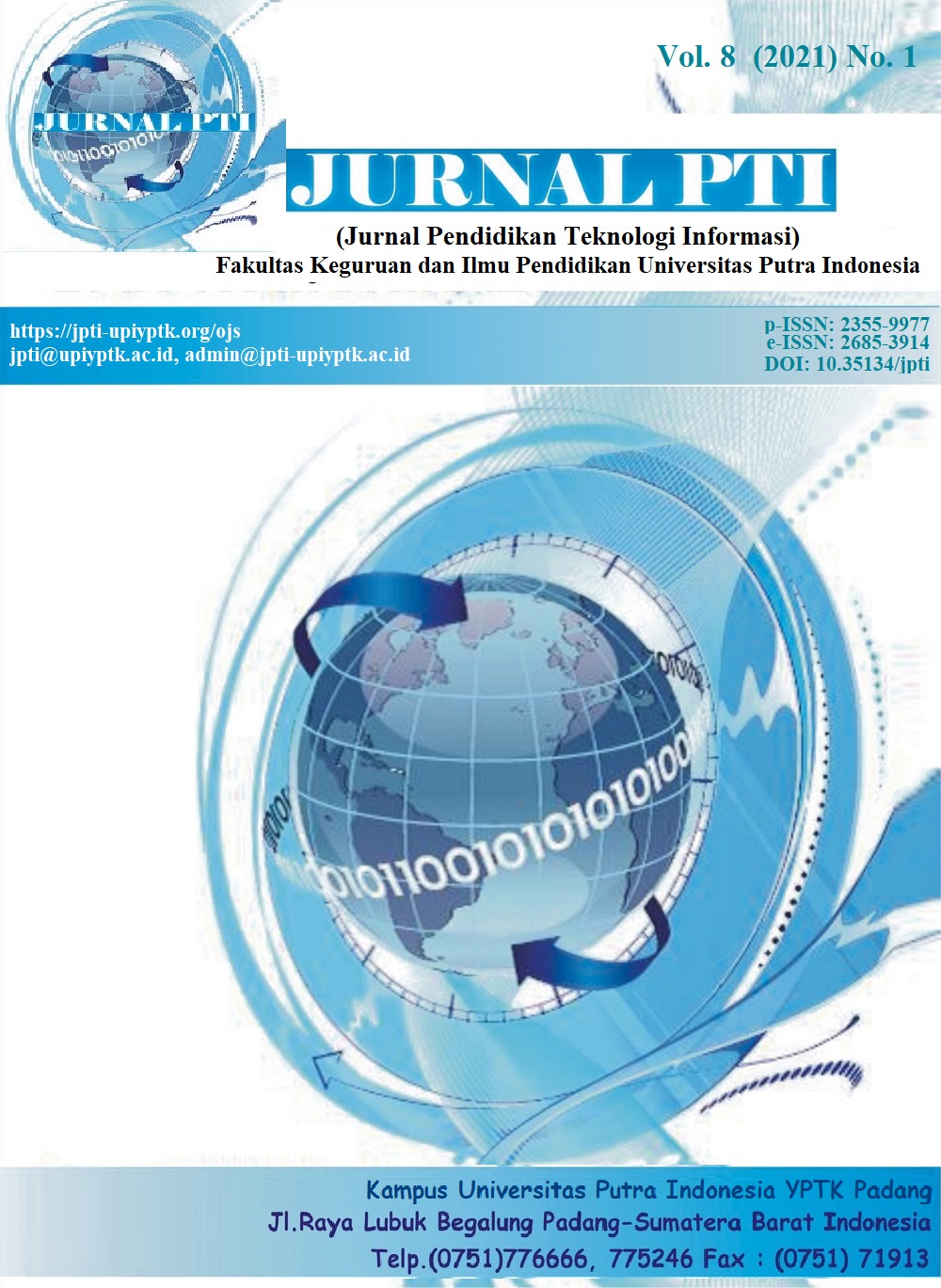The Impact Of AI ChatGPT On The Challenges and Opportunities for Civics Teachers In The Gen Z Era
DOI:
https://doi.org/10.35134/jpti.v12i2.240Keywords:
-Abstract
This study examines how character-based ChatGPT, a form of artificial intelligence, affects challenges and opportunities for Pancasila and Civic Education (PPKn) teachers. It looks at how teachers instill Pancasila values in Generation Z students at Taman Harapan High School. The research uses a qualitative, case study approach. Data was collected through in-depth interviews with PPKn teachers, ICT teachers, the vice principal overseeing curriculum, and students in grades IX–XII. Findings were enriched by classroom observations and analysis of teaching modules and attendance records. Character-based AI can enrich learning by sparking critical discussion, expanding resource access, personalizing reinforcement, and increasing motivation. Risks include academic ethics, reduced contextual meaning, unequal access to devices and connectivity, and educators' readiness. Teachers must improve their digital literacy, content curation, and assessment strategies to use AI for strengthening, not replacing, character-building. The study recommends tiered training in ethical AI use, clear school technology policies, monitoring mechanisms for student AI use, and providing basic infrastructure.The contribution of this research lies in the formulation of a character-based digital pedagogy framework that is in line with the principles of Pancasila, while also providing a practical basis for schools in designing inclusive, safe, adaptive, and meaningful 21st-century learning interventions. The findings also emphasize the need for teacher-parent collaboration to guide the productive use of AI, the development of digital classroom SOPs, and the development of originality assessment rubrics. Going forward, further research is recommended to explore cross-subject integration models and test the effectiveness of interventions through classroom action research designs in the Indonesian context
References
Acevedo, “Role of Artificial Intelligence in the personalization of distance education: a systematic review[Rol de la Inteligencia Artificial en la personalización de la educación a distancia: una revisión sistemática],” RIED-Revista Iberoam. Educ. a Distancia, vol. 28, no. 1, pp. 9–36, 2025, [Online]. Available: https://www.scopus.com/record/display.uri?eid=2-s2.0-85214458565&origin=scopusAI
H. N. Saputra, R. Rahmat, and K. Komalasari, “Pemanfaatan Artificial Intelligence Pada Pelajaran Pendidikan Pancasila Berbasis Projek Di Smp Daarut Tauhiid Boarding School,” Sanskara Pendidik. dan Pengajaran, vol. 2, no. 02, pp. 115–125, 2024, doi: 10.58812/spp.v2i02.397.
A. Gouseti, F. James, L. Fallin, and K. Burden, “The ethics of using AI in K-12 education: a systematic literature review,” Technol. Pedagog. Educ., vol. 34, no. 2, pp. 161–182, 2025, doi: 10.1080/1475939X.2024.2428601.
J. Weidlich, D. Gašević, H. Drachsler, and P. Kirschner, “ChatGPT in education: An effect in search of a cause,” PsyArXiv Prepr., pp. 1–21, 2025, doi: 10.1111/jcal.70105.
S. Chardonnens, “Adapting educational practices for Generation Z: integrating metacognitive strategies and artificial intelligence,” Front. Educ., vol. 10, 2025, doi: 10.3389/feduc.2025.1504726.
S. Supriadi, S. T. Dhayinta, L. E. R. Gunadi, M. Nasir, and Gigih Dwi Ananto, “21St Century Ppkn Learning Innovation: Android-Based Treasure Hunt Media To Improve Student Literacy and Active Participation,” Int. J. Sustain. English Lang. Educ. Sci., vol. 1, no. 2, pp. 64–71, 2024, doi: 10.71131/ae89wc36.
Supriyantini, D. O. Afiana, and M. F. A. Nasir, “REVOLUSI PEMBELAJARAN PPKn LEBIH SERU DAN EFEKTIF DENGAN TEKNOLOGI DIGITAL DI SD 2 JEPANG [Revolution,” Al-Qalbu J. Pendidikan, Sos. dan Sains, vol. 3, no. 1, pp. 1–7, 2025, doi: 10.59896/qalbu.v3i1.125.
M. P. Dr. Drs. Nur Arifin, PENDIDIKAN KARAKTER DI ERA DIGITAL. 2021.
P. K. Sari and Ninggar Renata Putri, “Pixton Digital Comic Media in PPKN Lessons to Improve the Character Profile of Pancasila Students,” J. Penelit. dan Pengemb. Pendidik., vol. 9, no. 1, pp. 125–135, 2025, doi: 10.23887/jppp.v9i1.85144.
C. N. Creswell, John W.; Poth, “Qualitative Inquiry and Research Design: Choosing Among Five Approaches,” 4th ed., SAGE Publications, 2018. [Online]. Available: https://www.sciencedirect.com/science/article/abs/pii/S1041608023000195?via%3Dihub
R. K. Yin, Case Study Research and Applications: Design and Methods, 6th ed. SAGE Publications, 2021. [Online]. Available: https://books.google.co.id/books/about/Case_Study_Research_and_Applications.html?id=6DwmDwAAQBAJ&redir_esc=y
S. A. College, “Globalization And Its Impact On Business Transformational Today,” JCRBE (Journal Curr. Res. Bus. Econ., vol. 3, no. 1, pp. 285–329, 1385.
W. Hidayat, D. R. Anandari Sulaiman, and S. R. Wulandari, “PKM Peningkatan Kognitif dan Motivasi Belajar Anak Tunagrahita SLB-C Makassar Dengan Camtouch Interactive Whiteboard,” Panrannuangku J. Pengabdi. Masy., vol. 4, no. 3, pp. 145–154, 2024, doi: 10.35877/panrannuangku3046.
R. D. Agustin, S. Wiyono, and R. Yamanto, “Analysis of Value Alignment and Ethical Guardianship of Learning with AI in Civic Education,” J. Moral Kemasyarakatan, vol. 9, no. 2, pp. 255–265, 2024, doi: 10.21067/jmk.v9i2.10650.
M. Granström and P. Oppi, “Assessing teachers’ readiness and perceived usefulness of AI in education: an Estonian perspective,” Front. Educ., vol. 10, no. June, pp. 1–10, 2025, doi: 10.3389/feduc.2025.1622240.
X. Wang, L. Li, S. C. Tan, L. Yang, and J. Lei, “Preparing for AI-enhanced education: Conceptualizing and empirically examining teachers’ AI readiness,” Comput. Human Behav., vol. 146, no. March, 2023, doi: 10.1016/j.chb.2023.107798.
Lewis, J. Schneegans, Susan, Straza, and Tiffany, UNESCO Science Report: The race against time for smarter development. UNESCO Publishing, 2021. [Online]. Available: https://books.google.co.id/books?hl=id&lr=&id=ENozEAAAQBAJ&oi=fnd&pg=PR8&dq=%5B17%5D%09Lewis,+Jake,+Susan+Schneegans,+and+Tiffany+Straza.+UNESCO+Science+Report:+The+race+against+time+for+smarter+development.+Vol.+2021.+Unesco+Publishing,+2021.&ots=Zsb31OQ
M. A. Ayanwale, I. T. Sanusi, O. P. Adelana, K. D. Aruleba, and S. S. Oyelere, “Teachers’ readiness and intention to teach artificial intelligence in schools,” Comput. Educ. Artif. Intell., vol. 3, no. June, p. 100099, 2022, doi: 10.1016/j.caeai.2022.100099.
Y. R. Effendi, “Character education based on the values and norms of the Indonesian philosophical system,” Sophia(Ecuador), vol. 2024, no. 37, pp. 255–282, 2024, doi: 10.17163/soph.n37.2024.08.
T. K. F. Chiu, “Responsible digital citizen: building AI ethics awareness across subjects,” Interact. Learn. Environ., vol. 33, no. 4, pp. 2759–2761, 2025, doi: 10.1080/10494820.2025.2494914.
Downloads
Published
How to Cite
Issue
Section
License
Copyright (c) 2025 JURNAL PTI (PENDIDIKAN DAN TEKNOLOGI INFORMASI) FAKULTAS KEGURUAN ILMU PENDIDIKAN UNIVERSITA PUTRA INDONESIA "YPTK" PADANG

This work is licensed under a Creative Commons Attribution 4.0 International License.





